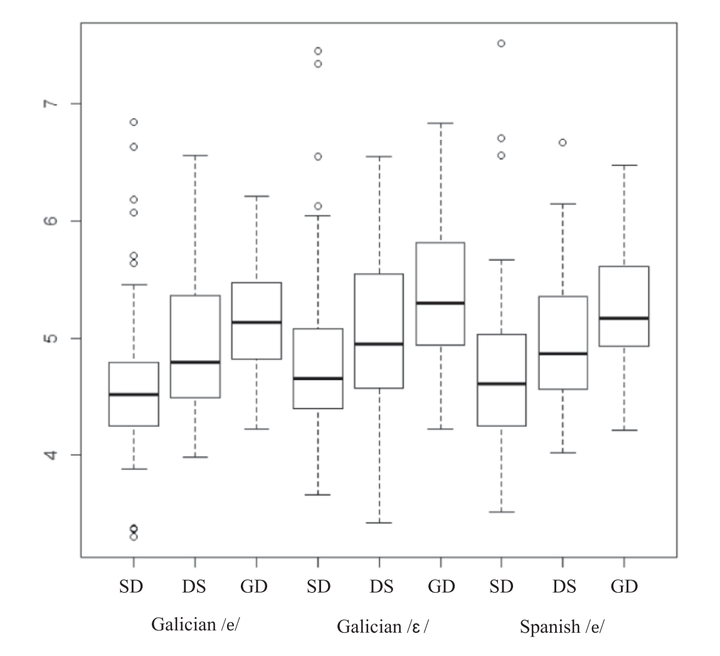The role of early experience and continued language use in bilingual speech production: A study of Galician and Spanish mid vowels by Galician-Spanish bilinguals

Abstract
This paper examines the vowel productions of three groups of adult Galician-Spanish bilinguals: Spanish-dominant (SD) bilinguals, Galician-dominant (GD) bilinguals, and Dual Switch (DS) bilinguals who had early experience with Galician in the home, predominantly used Spanish upon school entry, but in adolescence/adulthood switched to Galician for ideological reasons. To examine how linguistic experience with Galician and Spanish affected the participants' speech, a cued picture-naming task, conducted in unilingual and code switched conditions, was used to elicit the Galician mid vowel contrasts /e-ɛ/ and /o-ɔ/ and the Spanish mid vowels /e/ and /o/. The results revealed no difference in either condition in normalised F1 and F2 across the front and back vowels in the two languages. These patterns not only held for the SD bilinguals, for whom vowel mergers were expected, but also the DS and GD bilinguals. As such, the study is the first to document widespread mergers of Galician mid-vowels in bilinguals with extensive early Galician language experience and regular use, and to demonstrate overlap with Spanish mid-vowel categories. The findings suggest that psycholinguistic factors, such as age of acquisition or language use, can only partially explain the data and that input-related and socio-indexical factors are equally critical in understanding the acquisition and maintenance of language-specific speech patterns.